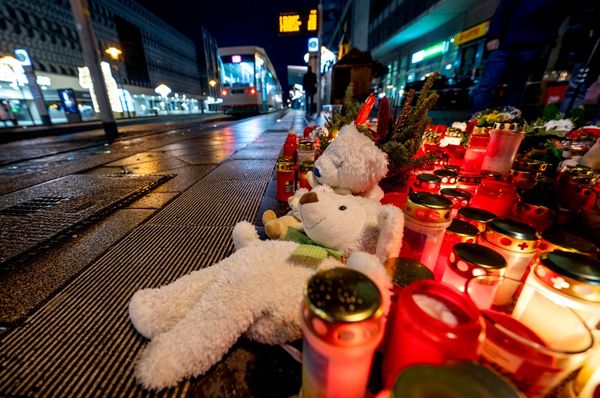
A journalistic ethics expert has expressed scepticism about Prime Minister Anthony Albanese’s claim that a Radio New Zealand reporter behaved unethically at the Pacific Islands Forum in Tonga.
Albanese levelled the accusation at RNZ journalist Lydia Lewis after she recorded him speaking alongside US Deputy Secretary of State Kurt Campbell, joking about the cost of a new regional policing arrangement.
Albanese asked Campbell whether the United States would be open to going “halvies” on the newly announced Pacific Policing Initiative, an agreement that Campbell appeared to infer the US pulled out of at Ambassador Kevin Rudd’s request.
“We’ve given you the lane so take the lane,” Campbell told Albanese in the footage, captured from in front of the pair with Pacific Minister Pat Conroy visible to Albanese’s right.
“You can go us halvies on the cost if you like!” laughed Albanese, appearing to jokingly grimace at the implications of the joke.
Albanese insists the process has been led by regional police chiefs rather than dictated by Canberra in an attempt to freeze out Chinese influence in the region (as flagged by Vanuatu’s Prime Minister Charlot Salwai) despite the fact that Australia funds the program at a cost of $400 million over five years.
The clip, posted by Lewis to social media, ends with Conroy noticing the camera — “Oh, come on Lydia!”
Asked about the exchange, Albanese dismissed the conversation as “what it is”, and implied Lewis had acted unethically in recording the conversation.
“It’s up to them, whoever did that, to think about their own ethics,” he said, according to The Australian Financial Review’s Andrew Tillett.
“When it comes to journalism, it was a private conversation, it was jovial conversation. People try and read something into it. You must be pretty bored. Journalists tend to identify themselves [as] professionals. I hope that you do.
“If people are coming up behind trying to tape conversations, that’s up to people themselves to argue that is ethical.”
Associate Professor Johan Lidberg, who teaches journalism and media ethics at Monash University, told Crikey he was somewhat baffled by Albanese’s ire.
“When it comes to politicians, it’s a part of the job to be aware that there might be microphones around them at any point in time,” Lidberg said.
“I don’t know why he was so grumpy about it.”
Lidberg said that while “strictly speaking when it comes to reporting you should always ask”, “in this sense it’s not practical — he’s on an official visit and there’s other reporters around him”.
“In terms of publishing [the video], good practice assumes the opportunity of a right of reply, but politicians should assume they are being recorded.”
Asked whether he thought on the basis of the footage and reporting that Lewis had acted unethically, Lidberg said: “I have a hard time seeing how [Albanese] could make that argument. It’s a different thing if you’re in a situation where you’re not aware [that you’re being recorded] but I don’t see how he could not be aware.”
RNZ news chief Mark Stevens responded to Crikey’s request to interview Lewis with a statement: “RNZ stands by its reporter and its reporting. Having spoken to our reporter, there is nothing to suggest they acted unethically or outside of our rigorous editorial policies.”







